Related Jobs
30 results
Employee | Full-Time | TBD

Employee | Full-Time | $85K - $115K

Employee | Full-Time | $69K - $70K

Employee | Full-Time | TBD

Employee | Full-Time | TBD

Employee | Full-Time | $52k - $68k

Employee | Full-Time | $97k - $145k
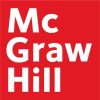
Contract | Full-Time | $62k - $78k

Employee | Full-Time | $110k - $148k

Employee | Full-Time | $133k - $225k

Employee | Full-Time | $60k - $80k

Employee | Full-Time | $96k - $255k
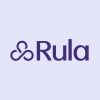
Employee | Full-Time | $176k – $196k
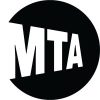
Employee | Full-Time | $92k - $104k

Employee | Full-Time | TBD

Employee | Full-Time | $70k - $90k
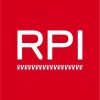
Employee | Full-Time | $80K - $90K

Employee | Full-Time | TBD

Employee | Full-Time | $233k - $362k

Contract | Full-Time | $54k - $75k

Employee | Full-Time | $169k - $232k
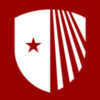
Contract | Full-Time | $80k - $86k

Employee | Full-Time | $79k - $118k
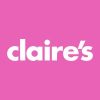
Employee | Full-Time | $52k - $71k

Employee | Full-Time | TBD
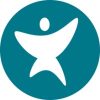
Employee | Full-Time | $85k - $100k

Employee | Full-Time | $60k - $65k

Employee | Full-Time | $55k

Employee | Full-Time | $110k - $220k

Employee | Full-Time | $170k - $200k
Curriculum Developer
Indigenous Health
Vancouver, BC
Pursuant to Section 42 of the British Columbia Human Rights Code, preference will be given to applicants of Indigenous Ancestry.
The Indigenous Learning Programs team, other members of the curriculum team and a range of partners to develop anti-Indigenous racism training that supports active learning using best online instructional practices and learning technologies. In this position, the Curriculum Developer is responsible for designing, building, implementing, evaluating, improving and coordinating a wide range of training and their components, including reviewing and assessing courses, ensuring that they are developed using sound design and development practices. The Curriculum Developer is also responsible for implementing guidelines and setting standards for the structure and overall quality of course materials; developing training goals and objectives; writing and editing that fits the functional need of each purpose within a variety of purposes; designing activities, materials and/or visual aids that support training goals including facilitative questions for cohorts; developing and revising curriculum in response to research, feedback and data.
What you’ll do
- Designs, develops and implements courses offered by Indigenous Health by collaborating with Indigenous Health senior leaders, Curriculum and Indigenous Learning Programs team members, advisory committees and partners.
- Develops training goals and objectives; writes and edits online curriculum; creates and/or secures supporting activities and materials; designs and creates presentation materials including PowerPoint files; liaises with content and subject matter experts; revises curriculum in response to research, feedback and data.
- Creates evaluation tools and analyzes pre-existing data received from course evaluations to make recommendations about possible improvements.
- Coordinates and/or administers projects to design, develop and/or deliver courses, including budgeting processes and timelines.
- Provides support to the production team when building the components of the course, and implementing learning activities/tasks, building assessments and developing digital content from source materials in appropriate media format.
- Collaborates to conduct research in support of Indigenous Health’s provincial mandate and to ensure evidence-based curriculum development.
- Provides input about emerging trends, research-based approaches and quality standards for the development and delivery of courses designed to encourage active student learning, participation and overall engagement.
- Represents the team on internal/external working groups and committees.
- Leads or supports special projects as required.
What you bring
- A level of education, training, and experience equivalent to a Master’s Degree in Gender/Race/Sexuality Studies, Anti-Racism Studies, Indigenous/Native Studies, Public Health, Equity Studies or a related field
- Five (5) years of related experience in course design, development, delivery, and assessment to adult learners.
- Demonstrate comprehensive knowledge of the historic and ongoing impacts of settler colonialism and systemic racism on Indigenous Peoples within social and health contexts. This includes understanding how these factors contribute to current health disparities and barriers to care. Show a clear commitment to identifying, challenging, and eradicating Indigenous-specific racism and all forms of discrimination impacting equity-deserving groups within healthcare settings. This involves recognizing personal biases, institutional barriers, engaging in anti-racism education and training and advocating for systemic change.
- Demonstrated knowledge and understanding of legislative obligations and provincial commitments within PHSA contexts found in the foundational documents including Truth & Reconciliation Commission’s Calls to Action (2015), In Plain Sight (2020), BC’s Declaration on the Rights of Indigenous Peoples Act (2019), United Nations Declaration on the Rights of Indigenous Peoples (UNDRIP), Reclaiming Power and Place Missing and Murdered Indigenous Women & Girls Calls for Justice (2019), the Declaration Act Action Plan and Remembering Keegan: A First Nations Case Study, BC Human Rights Code, Anti-racism Data Act and how they intersect across the health care system.
Core Competencies
- Brings an understanding of the Indigenous specific racism and the broader systemic racism that exists in the colonial health care structure, and has demonstrated leadership in breaking down barriers and ensuring an environment of belonging. Embed Indigenous Cultural Safety and Humility into all aspects of work. This means creating an environment where Indigenous patients feel respected, valued, and understood. Foster trust through respectful communication, active listening, and honoring equity-deserving people’s perspectives on health and wellness. Commit to ongoing education and training on Indigenous health issues, cultural safety, and DEI principles. Participate in workshops, cultural immersion experiences, and continuous professional development to stay informed and responsive to equity-deserving groups. Provide patient-centred care that respects Indigenous ways of knowing and healing, respects BIPOC experiences and world views ensuring that care plans are culturally relevant and holistic.
- Knowledge of social, economic, political and historical realities of settler colonialism on Indigenous Peoples and familiarity with addressing Indigenous-specific anti-racism, anti-racism and Indigenous Cultural Safety and foundational documents and legislative commitments (The Declaration Act, the Declaration Action Plan, TRC, IPS, Remembering Keegan, etc.).
Skills & Knowledge
- Demonstrated knowledge of Canadian colonial impacts on Indigenous people in social and health contexts, including the determinants of health in relation to legislation and public policy. This understanding should be supported by significant knowledge of Canadian and Indigenous theoretical orientations and ideologies. Knowledge and appreciation of the unique history, cultures, and rights of Indigenous Peoples in Canada is required. Lived experience with Indigenous populations and demonstrated extensive knowledge of culture, protocols, traditions, and ideology of Indigenous people and organizations is an asset.
- Experience with the pedagogies of applied education and the use of technology in the delivery of education. Demonstrated knowledge of educational design and appropriate scaffolding of knowledge. Demonstrated awareness and skills to support participant learning and of adult learning theory and practice. Demonstrated ability to manage the impact of participant racial identity (e.g. White, people of colour and Indigenous) on the effectiveness of the training and navigate resistance to learning. Ability to manage ambiguity and adapt to changing circumstances. Excellent problem-solving and critical analysis/critical thinking skills. Ability to work in a team and individually with limited supervision. Experience teaching and/or delivering or facilitating workshops for adult learners in varied formats of delivery (online, blended, face-to-face) and/or a certificate in adult education is an asset.
- Project Management Skills: Strong project management skills with the ability to coordinate projects, monitor and update project tasks and timelines. Ensures that department meet the timelines for development.
- Interpersonal Skills: Excellent ability to develop strong relationships and work collaboratively with a broad range of individuals, Indigenous people, team members, stakeholders and partners to accomplish tasks.
- Communication Skills: Proven excellent written and oral communication skills. Capable of writing and editing course related materials on various platforms. Contribute to production discussions and pursue ongoing communication with team members during course development and revisions.
- Technical Skills: Excellent computer skills and ability to readily learn new applications.
- Time Management Skills: Ability to effectively coordinate and prioritize tasks, schedule activities, stay focused on high impact initiatives, and complete assignments. Must be able to work independently and with minimal supervision. The incumbent is expected to handle multiple priorities and projects at the same time.
- Decision-making Skills: Willing and able to practice collaborative, team decision-making with other team members and/or senior leaders.
- Demonstrates a commitment to beginning and continuing their personal learning journey related to Indigenous-specific racism and dismantling systems of oppression, as well as addressing racism more broadly. Shows willingness to articulate and share their learning experiences to contribute to a culture of motivation and inspiration among peers.
- Demonstrates foundational knowledge of the social, economic, and political realities of settler-colonialism and its impacts on Indigenous peoples and equity-deserving groups within social and health contexts. Understands the impact of social determinants of health-on-health outcomes. Shows a commitment to learning about and upholding legislative obligations and provincial commitments outlined in foundational documents such as the Truth & Reconciliation Commission’s Calls to Action (2015), In Plain Sight (2020), BC’s Declaration on the Rights of Indigenous Peoples Act (2019), United Nations Declaration on the Rights of Indigenous Peoples (UNDRIP), Reclaiming Power and Place: Missing and Murdered Indigenous Women & Girls Calls for Justice (2019), the Declaration Act Action Plan, Remembering Keegan: A First Nations Case Study, the BC Human Rights Code, Anti-Racism Data Act, and the Distinctions Based Approach.
What we bring
Every PHSA employee enables the best possible patient care for our patients and their families. Whether you are providing direct care, conducting research, or making it possible for others to do their work, you impact the lives of British Columbians today and in the future. That’s why we’re focused on your care too – offering health, wellness, development programs to support you – at work and at home.
- Join one of BC’s largest employers with province-wide programs, services and operations – offering vast opportunities for growth, development, and recognition programs that honour the commitment and contribution of all employees.
- Access to professional development opportunities through our in-house training programs, including +2,000 courses, such as our San’yas Indigenous Cultural Safety Training course, or Core Linx for Leadership roles.
- Enjoy a comprehensive benefits package, including municipal pension plan, and psychological health & safety programs and holistic wellness resources.
- Annual statutory holidays (13) with generous vacation entitlement and accruement.
- PHSA is a remote work friendly employer, welcoming flexible work options to support our people (eligibility may vary, depending on position).
- Access to WorkPerks, a premium discount program offering a wide range of local and national discounts on electronics, entertainment, dining, travel, wellness, apparel, and more.
Job Type: Temporary, Full-Time (until January 31, 2027)
Salary Range: $88,990 – $127,923 / year. The starting salary for this position would be determined with consideration of the successful candidate’s relevant education and experience, and would be in alignment with the provincial compensation reference plan. Salary will be prorated accordingly for part time roles.
Location: 1333 West Broadway, Vancouver BC, V6H 1G9
Hours of Work: Monday-Friday; 0800 – 0400
Requisition # 187605E
What we do
PHSA’s Indigenous Health program aims to improve the health and well-being of Indigenous people, and to close the health gap between Indigenous and non-Indigenous British Columbians.
The Provincial Health Services Authority (PHSA) plans, manages and evaluates specialized health services with the BC health authorities to provide equitable and cost-effective health care for people throughout the province. Our values reflect our commitment to excellence and include: Respect people – Be compassionate – Dare to innovate – Create equity – Be courageous.
About Organization
Canada's first provincial health services authority.
Provincial Health Services Authority (PHSA) is one of six health authorities – the other five health authorities serve geographic regions of BC. PHSA's primary role is to ensure that BC residents have access to a coordinated network of high-quality specialized health care services.
PHSA operates provincial programs including BC Children's Hospital, BC Women's Hospital + Health Centre, BC Emergency Health Services, BC Cancer, BC Centre for Disease Control and BC Transplant. It is also responsible for specialized provincial health services like chest surgery and trauma services, which are delivered in a number of locations in the regional health authorities.
Report Post
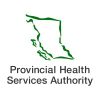
Curriculum Developer – Indigenous Health
Provincial Health Services Authority

